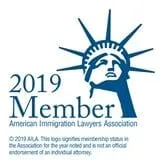- posted: Mar. 14, 2014
The Equal Employment Opportunity Commission (EEOC) has published new guidelines that discuss the how federal employment discrimination law (Title VII of the Civil Rights Act) applies to religious dress and grooming practices in the workplace. Religious dress and grooming practices include wearing religious clothing or articles (such as a Muslim hijab, a Sikh turban, or a Christian cross); observing a religious prohibition against wearing certain garments (such as some religion's practice prohibiting women from wearing pants of short skirts) or adhering to shaving or hair length observances. In most instances, employers who are covered under Title VII must make exceptions to their usual rules or preferences to permit applicants and employees to observe religious dress and grooming practices.
Title VII applies to employers with at least 15 employees. Title VII prohibits employers from treating people differently based on religion in recruitment, hiring, promotion, benefits, training, job duties, termination, or any other aspect of employment. Religious organizations are permitted to prefer members of their own religion in deciding whom to employ. Title VII requires employers to provide reasonable accommodation for sincerely held religious practices, unless the accommodation would cause an undue hardship for the employer. Employers may not engage in workplace or job segregation based on religion; must prevent workplace harassment based on religion; and may not retaliate against an employee who requests an accommodation or for complaining about religious discrimination.
The protections under Title VII apply to all aspects of religious practice and belief even if the religious beliefs are new, uncommon, or not part of a formal church or sect and also apply to those who profess no religious belief.
Assigning employees to non-customer contact positions because of actual or feared customer preferences violates Title VII. The EEOC guidance also makes it clear that an employer may not rely on a claim of "image" or marketing strategy to deny a religious accommodation.
Religious harassment under Title VII may occur when an employee is required or coerced to alter or adopt a religious practice as a condition of employment. Religious harassment also may occur when an employee is subjected to unwelcome statements or conduct because of that person's religion. Harassment may include offensive remarks about a person's religious beliefs or practices, or verbal or physical mistreatment that is motivated by the employee's religious beliefs or practices. Employers are liable for harassment by co-workers and third parties where the employers knew or should have known about the harassment and failed to take prompt and appropriate corrective action. Employers are also liable for harassment by a supervisor if the harassment results in a tangible employment action, such as the harassed employee being fired, demoted, or penalized in some other financial way. The employer may still be liable for a supervisor's harassment even if it does not result in a tangible employment action if the employer failed to exercise reasonable care to prevent and correct promptly any harassing behavior.
You can find the EEOC guidance at www.eeoc.gov/eeoc/publications/qa_religious_garb_grooming.cfm



